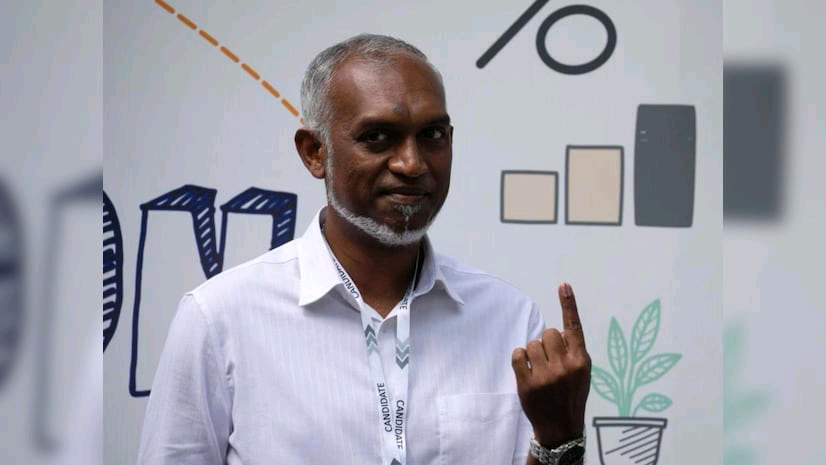After a runoff election with the incumbent, Ibrahim Mohamed Solih, Mohamed Muizzu was declared the winner. The election was closely watched for clues about the future of the young democracy on the island in the Indian Ocean, as well as the state of ties to China and longtime ally India.
Muizzu, who is 45 years old, is the leader of a party that encouraged a flurry of Chinese loans and repressed all forms of protest when they were in power before.
After the Elections Commission of the Maldives reported that Muizzu had received 54.06 percent of the vote in the run-off election, incumbent Ibrahim Mohamed Solih resigned defeat shortly before midnight.

“Congratulations to president-elect Muizzu,” Solih said on X (previously Twitter).
“Thank you for the beautiful democratic example shown by the people in the elections,” he said.
Until his replacement is sworn in on November 17, Solih, 61, will act as president.
Muizzu received 46% of the vote in the first round of voting on September 8th, making him an unexpected favorite. Solih won 39% of the vote despite low voting turnout and discord within his own Maldivian Democratic Party (MDP).
Importance of Elections in Maldives
The foreign policy of the Maldives was thought to be significantly affected by the runoff, especially the fight for influence between China and India in the strategically vital country.
The outcome today shows the patriotism of our people. Muizzu’s Progressive Party of the Maldives spokesman Mohamed Shareef was quoted by the Associated Press as saying, “a call on all our neighbors and bilateral partners to fully respect our independence and sovereignty.”
The previous government’s development programs, funded in part by China’s Belt and Road Initiative (BRI), were greatly aided by Muizzu, a former housing minister.
In a conversation with Chinese Communist Party officials last year, he predicted that his party’s reelection would “script a further chapter of strong ties between our two countries.”
China-India Perspective
Solih, who was elected president for the first time in 2018, was facing accusations from Muizzu that he had given India too much sway in the Maldives. Solih countered that his country’s sovereignty was not under jeopardy because the Indian military was only there to build a dockyard as part of a bilateral arrangement.
The trade links between the Maldives and India, which Muizzu claimed were skewed in favor of India, were another issue he promised to address.
The Maldives’ former foreign minister, Ahmed Shaheed, saw the election results as a reflection on the government’s inability to live up to economic and governance aspirations rather than fears of Indian meddling.
I don’t think India was even on people’s minds,” Shaheed said.
A charismatic former president, Mohamed Nasheed, broke away from the Maldivian Democratic Party and ran against Solih in the first round of voting, weakening Solih’s position in the race. In the rematch, he took a stand of neutrality.
The loss of Nasheed, as Shaheed put it, “removed the motherboard” from the MDP.
During his administration from 2013 to 2018, Yameen, who heads the Progressive Party of the Maldives, allied the country with China’s BRI. The program’s goal is to improve trade and expand China’s influence in Asia, Africa, and Europe by building railroads, ports, and roadways in those regions.
Support InfoStride News' Credible Journalism: Only credible journalism can guarantee a fair, accountable and transparent society, including democracy and government. It involves a lot of efforts and money. We need your support. Click here to Donate
